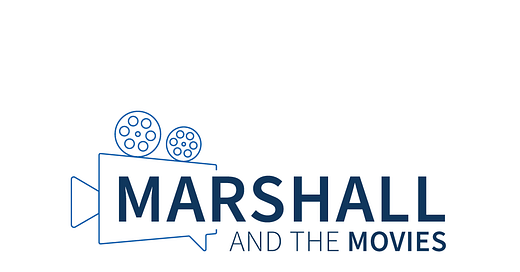This week, I published my first note on Substack Notes and would love for you to join me there!
Notes is a new space on Substack for us to share links, short posts, quotes, photos, and more. I plan to use it for things that don’t fit in the newsletter, like work-in-progress or quick questions. It seems kinda like a good form of Twitter once was.
Here’s another example of what you’ll be getting…
I’ve had more people than usual reach out to see if I have thoughts on something — and that thing was A.O. Scott’s exit interview on The Daily. For those who don’t know the name, he was the Grey Lady’s co-chief film critic for over two decades. He’s now taking his talents to their book reviews section.
He offered somewhat of a “State of the Union” address to Michael Barbaro, lamenting how streaming and superheroes have limited the broad-based interest in the medium. I don’t entirely disagree — and longtime readers may know that I wrote a ten-part column addressing these seismic industry shifts called “Smells Like ‘10s Spirit.” And, look, I approach this with reverence for Scott in the field. I’ve read his book, inhaled his criticism, and even talked with him at a casual industry event.
But with all due respect, this interview is garbage.
Take my commentary with a large grain of salt given the myopic lens through which it naturally comes. I’m someone still trying to make an ascent in the field that he’s writing off. But it strikes me that he’s not mad that criticism at large has less power — he’s mad that being the film critic at the New York Times has less power. I have no doubt he felt that power walking into a screening among his peers. He’s a singular figure who commanded respect by entering a room; I remember everyone sitting up a little straighter and keeping their conversations more professional when he sat down in a small room last fall.
But I get the sense he felt that less in the wider world of film criticism where the curiosity of mainstream audiences has been supplanted by corporate-funded fandom. And that probably stands in stark contrast to a number of other writers at the Times. I mean, their political writers have arguably never been more important. Other reviewers, such as their restaurant and theater critics, still have the power to close an operation with a pan. He’s speaking less to local readers and more to a global audience who has the ability to consume more content in more ways at more times.
And, for that reason, I think the weekly column/movie reviewer struggles to stay relevant because it’s out of step with the way that people consume them these days. If you want to reach them with something that hasn’t been advertised enough for them to come to a critic for validation of whether or not they should see it, you have to get creative on how to break through the noise!
I love writing things like streaming guides where I can Trojan horse a recommendation for a quiet indie or unsung foreign film. I think curated lists and other innovative formats can go a long way to push people toward movies they would not know to search for on their own. I’d argue critics are more needed than ever because we are operating from abundance, not scarcity when it comes to content consumption. That’s why I feel more resolved than ever to keep at this, and I thank everyone who’s sticking with me.
How to join
Head to substack.com/notes or find the “Notes” tab in the Substack app. As a subscriber to Marshall and the Movies, you’ll automatically see my notes. Feel free to like, reply, or share them around!
You can also share notes of your own. I hope this becomes a space where every reader of Marshall and the Movies can share thoughts, ideas, and interesting quotes from the things we're reading on Substack and beyond.
If you encounter any issues, you can always refer to the Notes FAQ for assistance. Looking forward to seeing you there!
Yours in service and cinema,
Marshall








